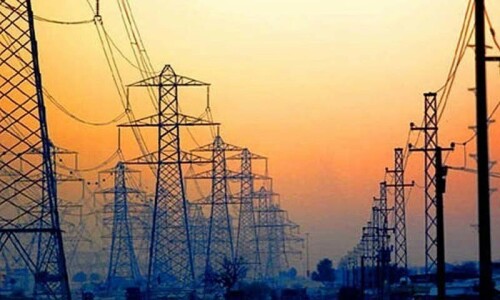ISLAMABAD: Pakistan’s gross domestic product witnessed a meagre expansion of one per cent in the second quarter of 2023-24 compared to 2.2pc in 2QFY23 mainly due to a contraction in the industrial sector.
The agriculture sector contributed the most to the nominal growth in the second quarter, followed by the services sector which also grew nominally. It was also far lower when compared with the revised 2.50pc growth in the first quarter of FY24.
The National Accounts Committee (NAC) at its 108th meeting on Thursday evaluated the quarterly GDP projections for Q1 and Q2 of 2023-24. In November, the NAC approved the introduction of Quarterly National Accounts (QNA) into the country’s statistical system.
QNA provides a timelier snapshot of the economy at a shorter interval when compared to the Annual National Accounts (ANA).
Agriculture, services sectors prove to be major contributors
Agriculture
The agriculture industry grew by 5.02pc in Q2 compared to the same period last year, owing to a strong increase in crops, particularly essential crops. Important crops grew by 8.12pc in Q2 due to considerable increases in final cotton, rice, and maize production. Wheat, which did not influence Q1, has increased in area by 6.7pc compared to last year, which is beneficial for Q2 projections.
Sugarcane has had a negative growth of 10.7pc in 2023-24, which has been offset by growth in the remaining four crops. Another essential point to note is that Q1 growth came from a very low base in Q1 2022-23, yet Q2 showed a strong increase in important crops despite a high base in Q2 2022-23.
Important crops have grown at a slightly negative rate of 0.31pc due to a decrease in green fodder output (0.72pc). Cotton ginning and miscellaneous components, which had a very high negative growth rate due to low cotton output in 2022-23, are now experiencing double-digit growth due to excellent cotton crop production in 2023-24. Livestock is stable, and forestry and fishery continue to increase at their regular rates.
Industrial sector
Industry in Q2, like Q1, has shown a negative growth as compared to Q2 last year. Negative growth of (4.17pc) has been witnessed in the mining & quarrying industry because of a decrease in the production of gas (5.04pc), marble (40.13pc), limestone (20pc) etc and a decline in exploration cost.
Large-scale manufacturing (LSM), which is based on the Quantum Index of Manufacturing (QIM) for the quarter (October-December), has witnessed a positive growth of 0.35pc due to an increase in cooking oil, garments, fertilisers, etc. The electricity, gas and water supply industry has shown a positive growth of 1.54pc because of the increase in output of IPPs, hydropower and nuclear plants. The construction industry shrank 17.59pc in Q2 due to a decline in production of cement (8.7pc) and iron & steel (2.5pc).
Services industry
The services industry grew by 0.01pc in the second quarter of 2023-24. An internal analysis of the industry reveals a mixed tendency. Wholesale and retail trade increased by 2.11pc due to favourable increases in agricultural output and LSM.
Although imports declined, the negative impact was mitigated by a rise in agricultural and industrial output. The transport and storage industry has grown by 1.13pc due to increasing output from railways and road transport. As a result of high inflation, actual growth in the Information and Communication, Finance and Insurance, Public Administration, and Social Security industries has been negative at 5.43pc, 11.1pc, and 16.18pc, respectively.
Furthermore, both the Education and Human Health and Social Work businesses have had negative growth of 0.85pc and 2.53pc, respectively.
Other private services have been assessed at 3.63pc positive growth based on indicators received from the sources.
Published in Dawn, March 29th, 2024















































Dear visitor, the comments section is undergoing an overhaul and will return soon.